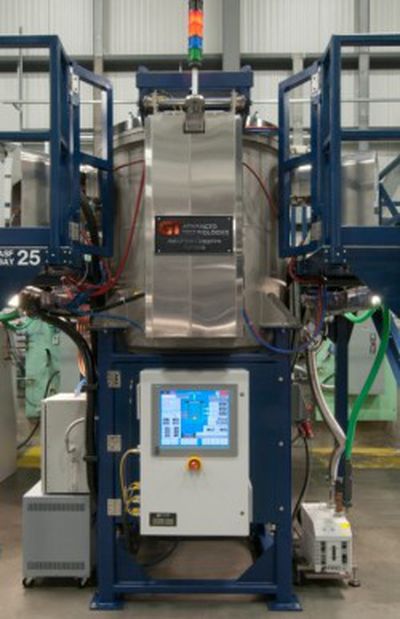 Earlier this week, it was revealed that Apple and its sapphire supplier GT Advanced Technologies had reached an agreement to effectively dissolve their partnership and allow GT to shut down operations at the Apple-owned sapphire production plant in Mesa, Arizona. Under the deal, GT will seek to sell off the over 2,000 sapphire furnaces currently installed at the facility, with the majority of the proceeds from those sales going to Apple to help repay $439 million in loans Apple made to help the operation get underway.
Earlier this week, it was revealed that Apple and its sapphire supplier GT Advanced Technologies had reached an agreement to effectively dissolve their partnership and allow GT to shut down operations at the Apple-owned sapphire production plant in Mesa, Arizona. Under the deal, GT will seek to sell off the over 2,000 sapphire furnaces currently installed at the facility, with the majority of the proceeds from those sales going to Apple to help repay $439 million in loans Apple made to help the operation get underway.
GT has now officially announced the deal and published the full agreement, redacting only the amounts Apple will be paid per furnace sold.
Under the terms of the settlement agreement, which is subject to approval by the Bankruptcy Court, GT will be released from all exclusivity obligations under its various agreements with Apple. GT will retain ownership of all production, ancillary and inventory assets located in Mesa and Apple is provided with a mechanism for recovering its $439 million pre-payment made to GT over a period of up to four years without interest, solely from a portion of the proceeds from ASF® [Advanced Sapphire Furnace] sales. The agreement provides for a mutual release of any and all claims by both parties. As a result of the agreed upon terms, GT retains control of its intellectual property and will be able to sell its sapphire growth and fabrication technology, including ASF and Hyperion™, without restrictions.
While the two companies are severing their production agreement, they will remain in contact as GT continues its research work focused on producing larger sapphire boules of over 165 kilograms. The two companies will meet at least quarterly to discuss GT's progress on that front, with potential collaboration still possible if both sides agree to move forward.
GT filed for bankruptcy earlier this month as it became clear the company was spending over a million dollars per day to run the operation even as it was apparently unable to produce sapphire of the quality required by Apple. GT's troubles began as early as February as it was late in meeting milestones to qualify for Apple loan payments. Apple's continued withholding of the final $139 million payment may ultimately have resulted in GT deciding to pull the plug on the operation, even as Apple reportedly continued to try to help overcome GT's technical problems.
GT is looking to wind down its sapphire production operation by the end of the year, wrapping up sapphire boule production currently underway and decommissioning the furnaces to prepare them for storage and resale. Roughly 650 employees at the Arizona plant have already been laid off, and the company will continue to lay off additional employees across its locations as it brings the production partnership with Apple to an end.
(Image: GT's Advanced Sapphire Furnace)

















